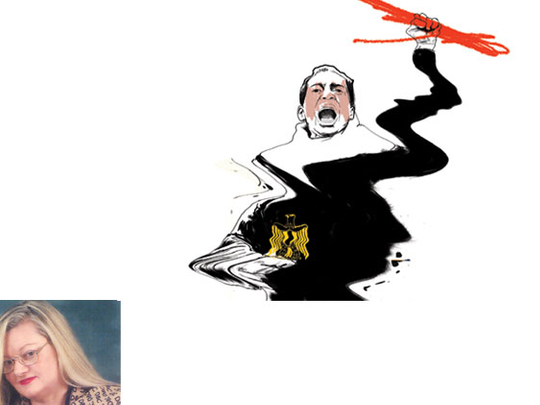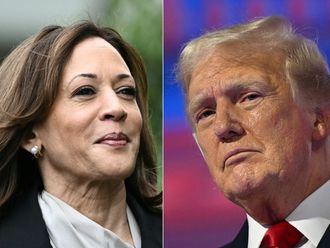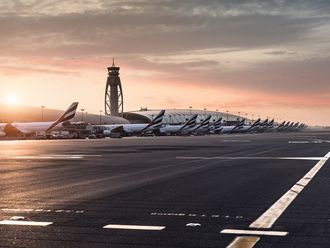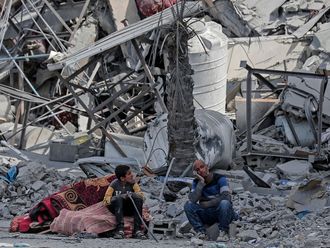
US Secretary of State Hilary Clinton has warned the Arab world's revolutions could be remembered as little more than a mirage in the desert unless leaders fulfil their duty to provide democracy and greater economic opportunities.
When it comes to Egypt's revolution with its promise of freedom for the individual, political pluralism and an end to corruption that can't be true…or can it? Unless the Egyptian people put aside sectarianism and keep religion out of politics, sadly, she may have a point.
When the revolution was in full swing, Egyptians were united. Secularists, modernists, Islamists and Copts all had the same aim of ousting the hated Mubarak regime. As revolutions go, this was a model that elicited admiration from people everywhere glued to their sets watching fresh-faced, tech-savvy youngsters enthuse about the future and Christians and Muslims protecting one another during prayers.
Almost as soon as President Hosni Mubarak announced his resignation, cracks in the people's togetherness began to form. Three months on, they are widening into chasms.
Such divisions are becoming more and more pronounced in Egypt's second city Alexandria where I'm based. Each evening, the Italian-style coffee shops are full to overflowing with young people sipping cafe latte, laughing with their contemporaries, playing computer games on big screens or engrossed with the contents of their laptops.
A few weeks ago, I was surprised to find a live band on a cafe-lined street in the upscale ‘new' downtown area and was even more astonished when I peeked into a new karaoke cafe to see young men and women dancing to ear-splitting music; in this city known for its conservatism that was a first.
Then just a few weeks ago, I heard people chanting in the street. I ran to my balcony where I saw many thousands of all-male, mostly bearded demonstrators, many wearing Salafist garb, marching, chanting Islamic slogans and holding Islamist banners high, protesting the disappearance of Camilla Shehata and Wafa'a Constantine — two Coptic women who allegedly converted to Islam in order to divorce their husbands before being detained by their families against their will. That was certainly the first time that I'd witnessed that kind of public display of faith in such large numbers.
It's a phenomenon that has shocked Egyptian secularists and moderates, most of whom had no idea that the Salafist movement even existed before the uprising or that its devout members who have always eschewed politics would seek to form a political party.
Some are blaming Salafists, who believe Egyptian Muslims need guiding towards a path of correctness, for the recent attack on a Coptic church and shops in Imbaba, a deprived area of Cairo while others insist it was engineered by thugs working for disgruntled remnants of Mubarak's now defunct NDP Party.
Whatever the truth, Egypt's Copts feel they're under siege and have been gathering outside the state television building for days to highlight their concerns culminating in a clash between Coptic protesters and unidentified attackers who threw Molotov cocktails and rocks, killing two and injuring up to 60.
Coptic families now fear attending church services and, according to the Egyptian Federation of Human Rights, many more Copts than usual are keen to pack-up and leave the country.
In the meantime, the Muslim Brotherhood has been trying to appeal to a broad spectrum of Egyptians by masking its core agenda that revolves around the introduction of Sharia law as a prelude to pronouncing Egypt an Islamic state with faux liberalism. However, the mask has now fallen off.
The Brotherhood has not only reneged on its promises not to field a presidential candidate in upcoming elections or target more than 30 per cent of all parliamentary seats, it has joined with hardline Salafist groups to form an electoral coalition.
Substantial following
A senior member of the Muslim Brotherhood Abdul Moneim Abu Al Fatouh, a doctor, says he will run for president as an independent, the same trick used by the Brotherhood when it was a banned organisation, and the group's new ‘Freedom and Democracy' party is now set to battle for 50 per cent of seats in parliament.
Whether or not it can succeed is moot. It's almost impossible to judge how much support the Brotherhood and the Salafists enjoy outside the main cities; moreover, they have a substantial following among the outwardly sophisticated that were deft at concealing their affiliations when Mubarak was in power.
So far, polls indicate that former Arab League chief Amr Mousa is the leading presidential candidate but if that trend is to continue, he needs to clear out his desk in the League's headquarters tout de suite and begin seriously campaigning.
Likewise, the youth movement that complains its revolution is in danger of being hijacked should get its act together, forget all that idealistic ‘we don't require a leader' nonsense and come up with charismatic wannabe parliamentarians able to relate to the concerns of ordinary people of all ages and all social strata.
There's no doubt that Egypt's inclusive democratic future is in the balance. If Egyptians want to prove Clinton wrong they must come together to preserve their hard-won freedoms and block a looming theocracy or even, in the worst case scenario, civil war.
Linda S. Heard is a specialist writer on Middle East affairs. She can be contacted at lheard@gulfnews.com










